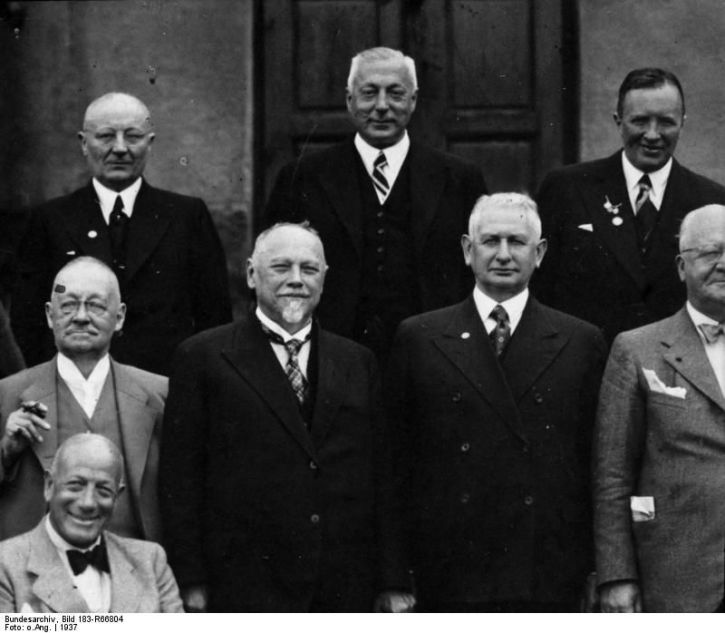On 28 February, Friedrich Flick, one of Germany's biggest tycoons, was arrested in Frankfurt am Main by the American occupation authorities and sent to Landsberg prison. Markew, the American head of the German decartelisation department, personally recommended arresting Flick and assured that he would recommend trying him as a war criminal.
Flick provided support for the Nazi movement from the early 1930s. After the Nazis came to power, he expanded his business by confiscating Jewish enterprises. Under the Nazis, he managed to build the “Friedrich Flick” steel concern. More than 50,000 concentration camp prisoners were forced into slave labour in his enterprises.
Flick was one of the “Circle of Friends of the Economy”, a group of German industrialists who supported the Nazi regime. In 1940, addressing “Nazi No. 2” Hermann Goering, he said: “The group of my factories is especially suitable for the management of the Lorraine factories ... I would owe you, dear Reichsmarschall, if you decided to transfer the ‘Hombach’ steelworks to my group” – and he soon obtained it.
Flick was indicted on 8 February 1947. The trial took place from 19 April to 22 December 1947, it was one of 12 Nuremberg trials of the military, political, and economic leadership of Nazi Germany, which took place after the trial of the main war criminals.
Flick was sentenced to seven years in prison, but he was the only industrialist allowed to hold meetings with his concern’s directors in prison.
In January 1951, all imprisoned industrialists were released. Flick rebuilt his concern, which became the most powerful metallurgical and military-industrial association in Germany. In 1955, Flick controlled nearly a thousand companies (including Daimler-Benz). Friedrich Flick was the richest man in post-war Germany and the fifth richest man in the world.
Source: “Izvestia”, 1 March 1946
























